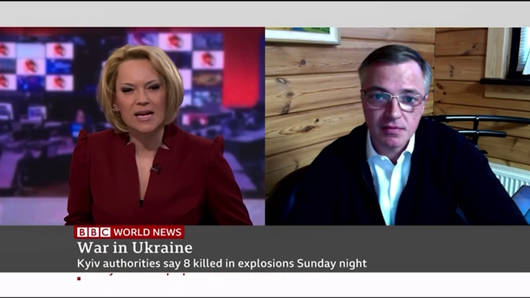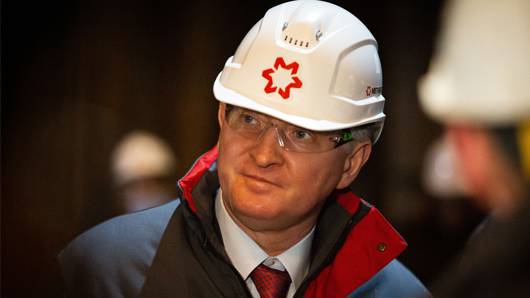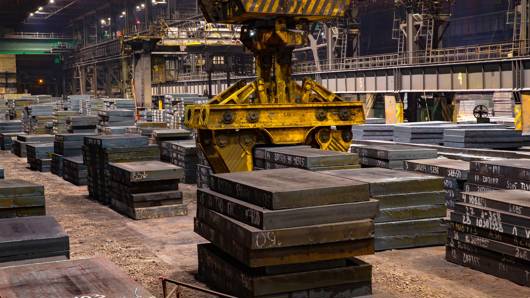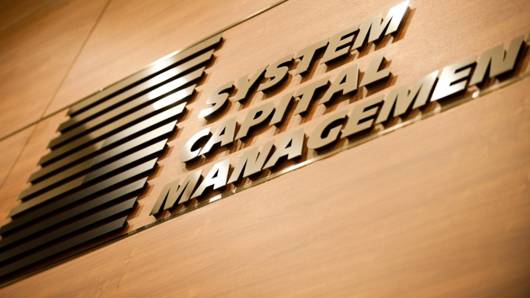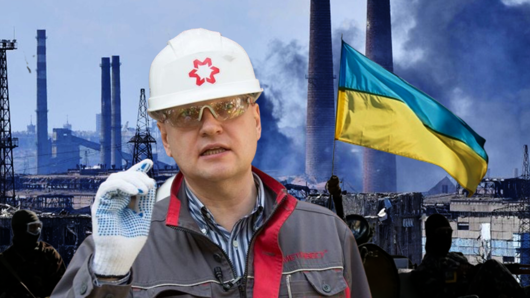The European Business Association continues its talks with interesting people about how they have adjusted to the new situation. This new conversation, part of the Let’s Talk project, is with Yuriy Ryzhenkov, CEO of Metinvest Group.
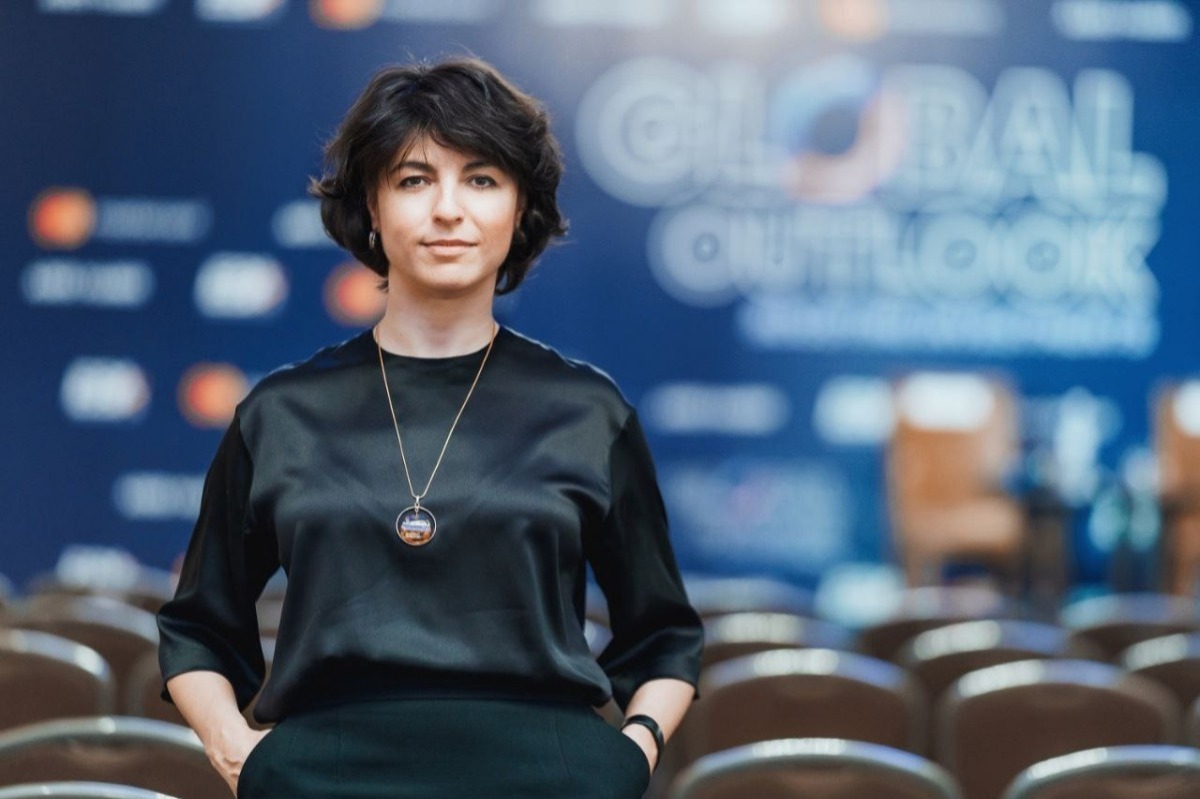
Anna Derevyanko, EBA Executive Director
Anna Derevyanko, EBA Executive Director: Yuriy, there were different opinions in the run-up to the war: the vast majority believed there would be no war. To which camp did you belong: optimists or pessimists? And if you were an optimist, did you prepare a Plan B or not?
Yuriy Ryzhenkov: I was absolutely positive there would be no war. I could not even imagine someone would unleash such madness. Even just by looking at the forces the Russian Federation concentrated at the beginning of the war near Ukraine’s borders, it was clear to me it would be impossible to seize Ukraine with those forces. Had we not had the Armed Forces of Ukraine, had we not stood up, and had everyone welcomed them with flowers, this would have been possible. But I knew it would not be the case.
We had to prepare ourselves as a company. We believed that an escalation in the Donbas region was possible. While Azovstal is a brand of its own now, why did it become such a brand? Because we prepared bomb shelters there and stocked them with food, water and generators beforehand. As such, it had all the things necessary for people to stay there for a long time. For two or three weeks, we thought. Unfortunately, it happened that people had to stay there for much longer than that.
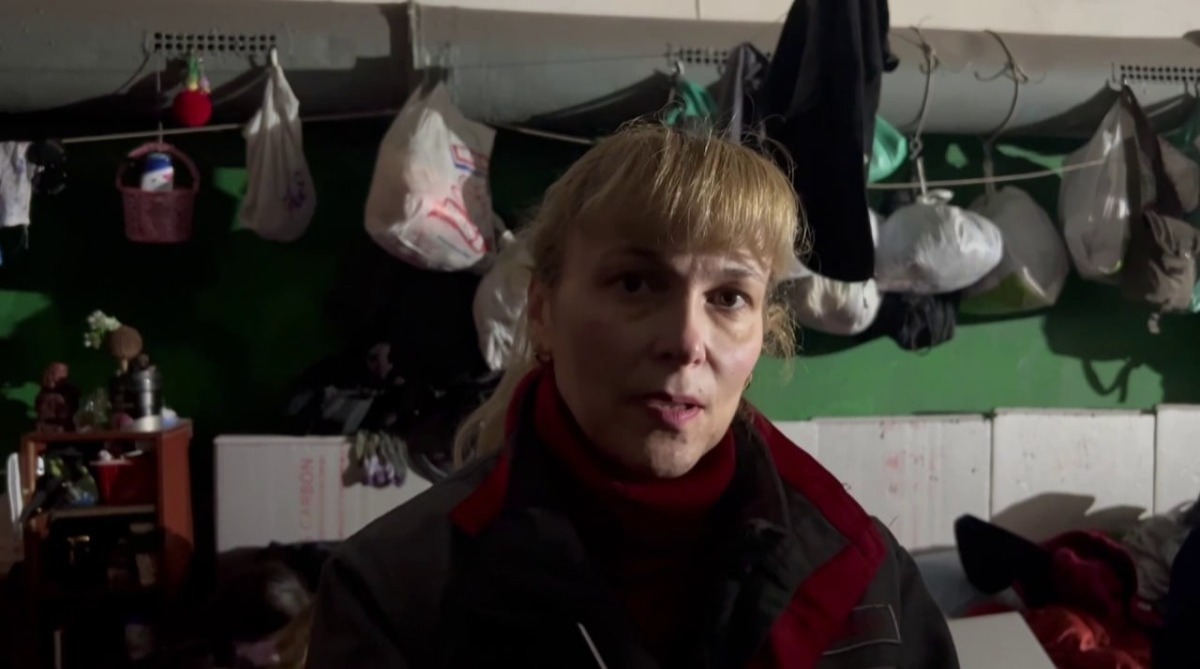
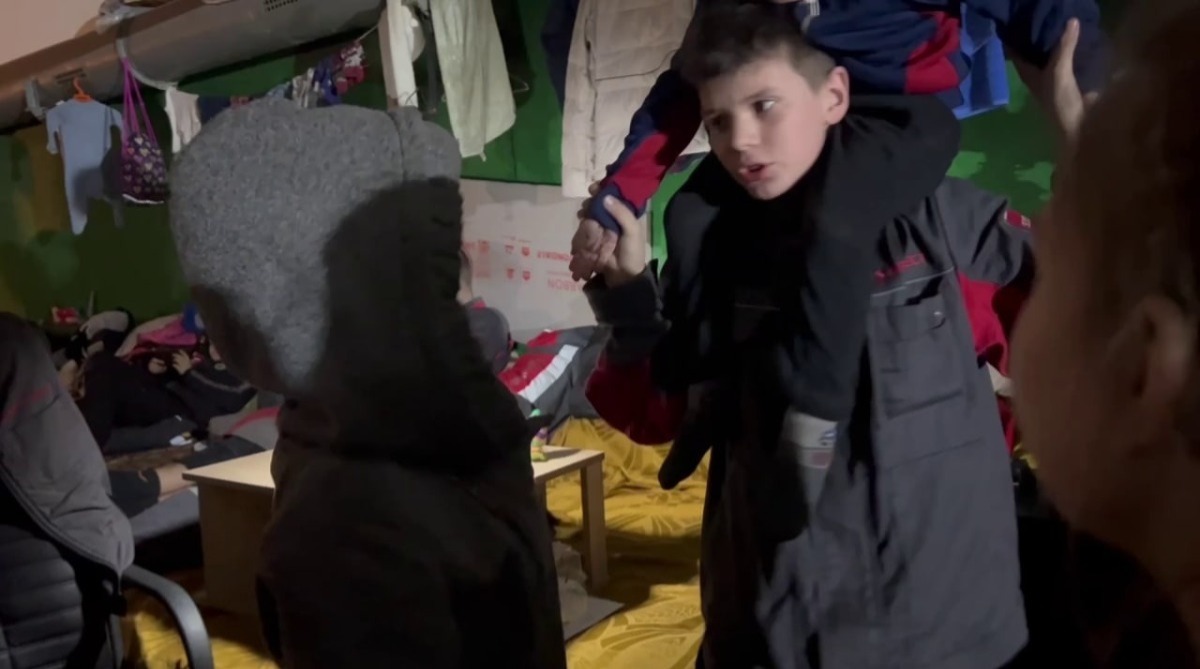
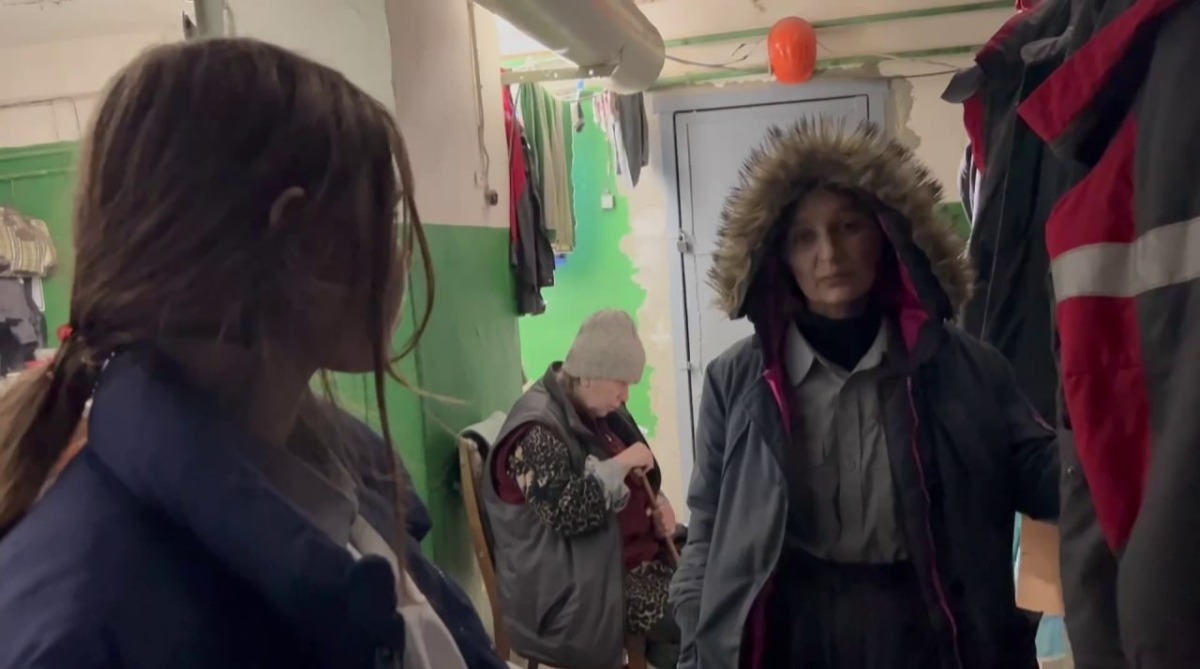
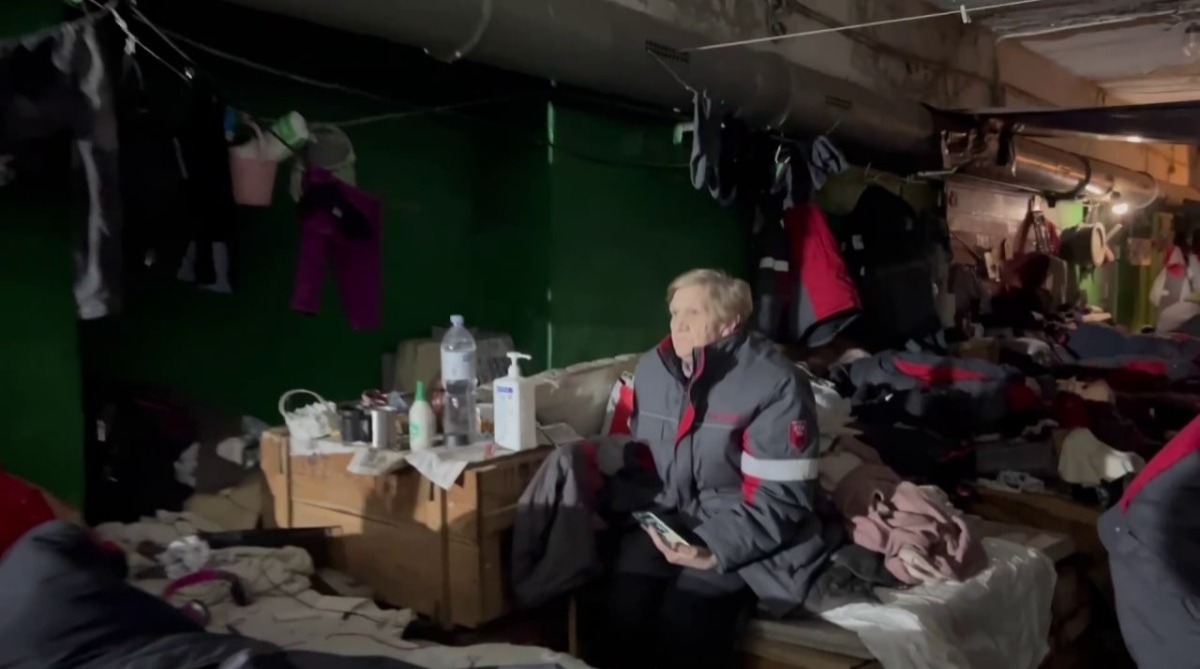
For a long time, employees of Metinvest with their families and residents of the city were hiding in the bomb shelters of Azovstal
– What about the business? Have you made any personnel changes or revised salaries? What have you done to keep the business afloat?
– Yes, the business had to be rebuilt seeing that we had lost two large enterprises. To be precise, we have not lost them yet – we hope to regain them and be able to restart them. Even our shareholders said they would do everything possible for Mariupol to exist, for Azovstal and Ilyich Steel to work
We are also faced with blocked ports on the Black Sea, which have been traditionally used for export not only to Asia but also to Europe. We use land border crossings in the west now. When we started, there were two or three of them compared with thirteen as of now [at the time of the interview – editor], and their number is growing. In this regard, we need to thank Ukrainian Railways, which has been increasing the number of such crossings. This, of course, does not meet Ukraine’s demand for shipping. In addition, there are constraints we must deal with now.
– What about people?
– We have several approaches. First, we have those who work full-time. They are paid their salaries. Others have been laid off. They are paid two-thirds of the average salary in accordance with the legislation
Aside from this, we have the case of people from Mariupol, some of whom either have stayed in the occupied territory or even went to the aggressor country by force or by choice. We cannot do anything in this case: we accrue but do not pay salaries to such people. We communicate to let them know that we are ready to employ all those who will go to the cities and towns where Metinvest Group’s businesses operate to work at our enterprises or public utilities.
When it comes to the parent company, it has been downsized, since business has been curtailed. Insofar as administrative personnel and personnel of the management company is concerned, we have downsized by approximately 45%.
– Regarding logistics, it is, indeed, one of the key issues exporters must deal with. If ports are not unblocked, will it still be possible to export? Europe and Ukraine are considering different options for shipping products. Some experts, however, say it is physically impossible for such a large tonnage in question.
– The question is how soon. We have the example of Mariupol, where in 2016 supply routes were disrupted, and there was one railway line left: Komysh Zorya-Volnovakha. At first, it would receive three to four trains, primarily passenger ones. We have modernised it together with Ukrainian Railways. By the end of 2018, it became possible to supply the facilities in Mariupol via this line: more than 40 trains a day. So, everything is possible. This did not happen at once, though.
We will see the same happen to the western crossings. Ukrainian rail tariffs are high enough already. Aside from this, we have rail tariffs in Europe, which are even higher than the Ukrainian ones. When we put all these things together, it becomes simply unprofitable to supply ore to China.
Both the EU and Ukraine should decide which way to go.
– If not to China, where will you ship it?
– We will not produce this ore. There is no other recipe. We have European customers to whom we ship it. And we will, of course, operate at the maximum capacity in this regard. But they cannot take in all the ore that we can produce. The rest needs to be shipped somewhere, either to the Middle East or Asia. This raises the question of economic viability
Both the EU and Ukraine should decide which way to go. Do we want to make big money on logistics services rendered to ore and grain producers, and so on? Or do we want to reboot the economy and make it possible to export? If so, such transportation must be subsidised. It is, therefore, a joint effort between the government, logistics companies and companies like ours, which have this ore, grain or whatever else that needs to be shipped to external markets.
– Some say we should produce more finished products in Ukraine to make the processing chain longer and to export more expensive products. Do you agree?
– Absolutely. Unfortunately, all the investments we have made in higher value-added products have been in Mariupol. In the last eight years, we invested quite a lot. We had started to produce new hot-rolled coils and would have produced new cold-rolled coils in the next two years. Those would have been world-class products.
Now, we need to do the same at Zaporizhstal or Kamet Steel. However, it will take around three to four years to install a simple continuous casting machine at Zaporizhstal. So, it is not fast. It would also be normal for the government to say: alright, we will give you a discount, for example, on the ore transportation for the period of construction of the CCM so that you bring in foreign currency revenues to Ukraine. But then you will need to build new facilities to process high value-added products.
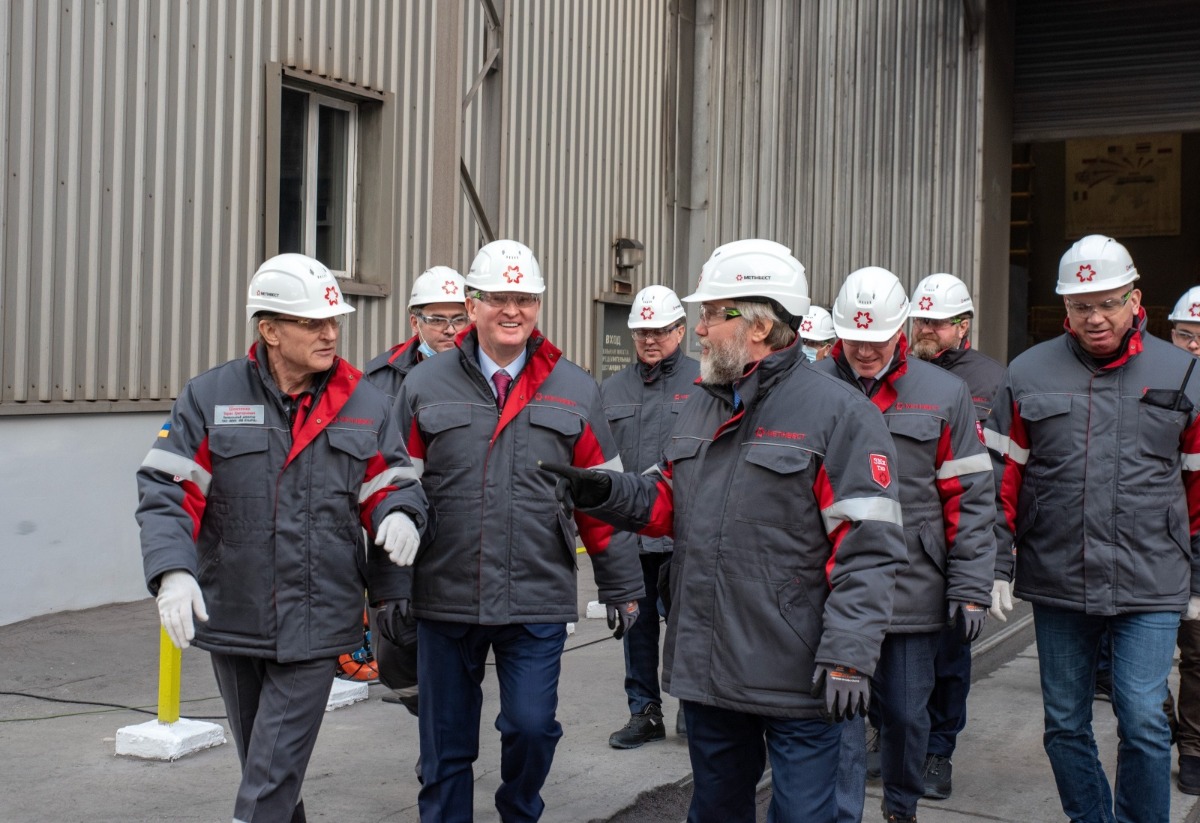
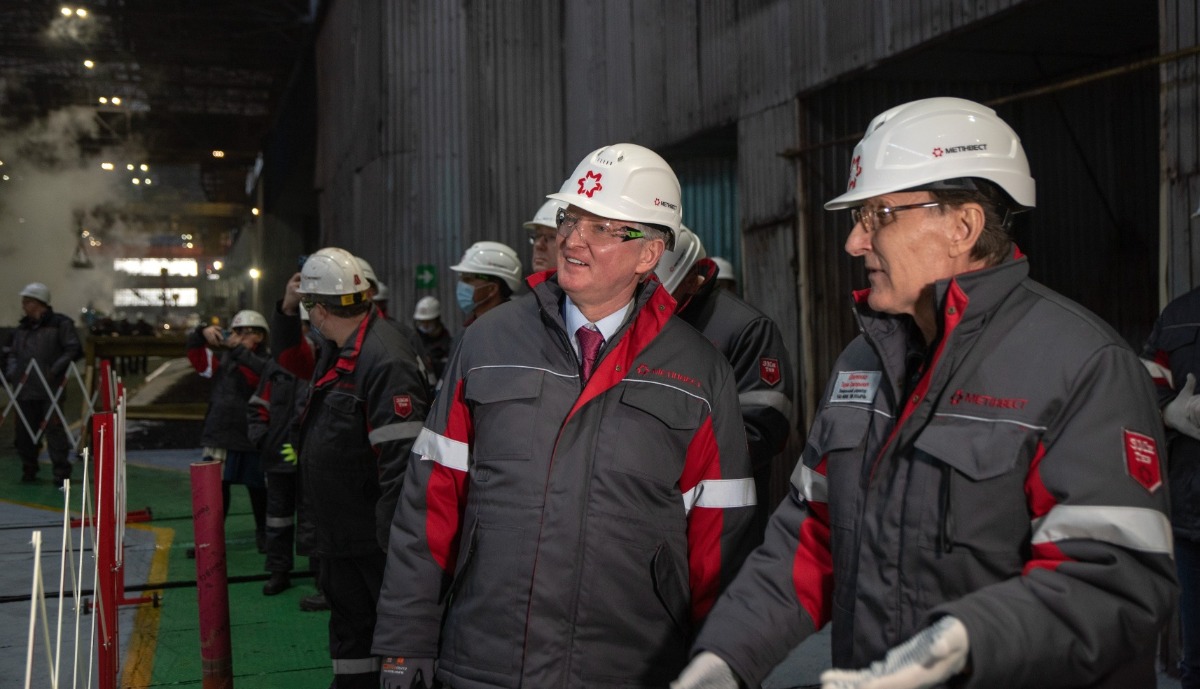
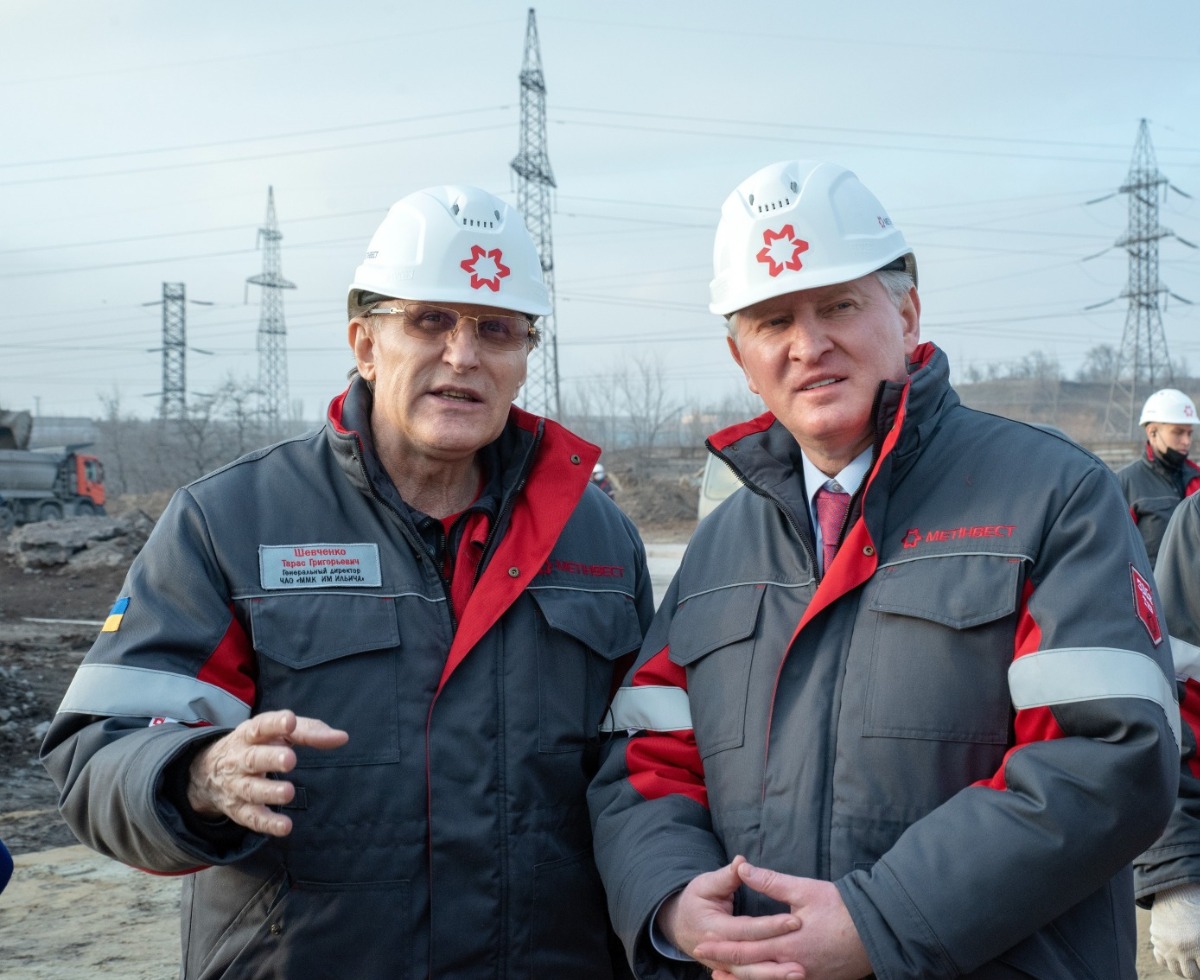
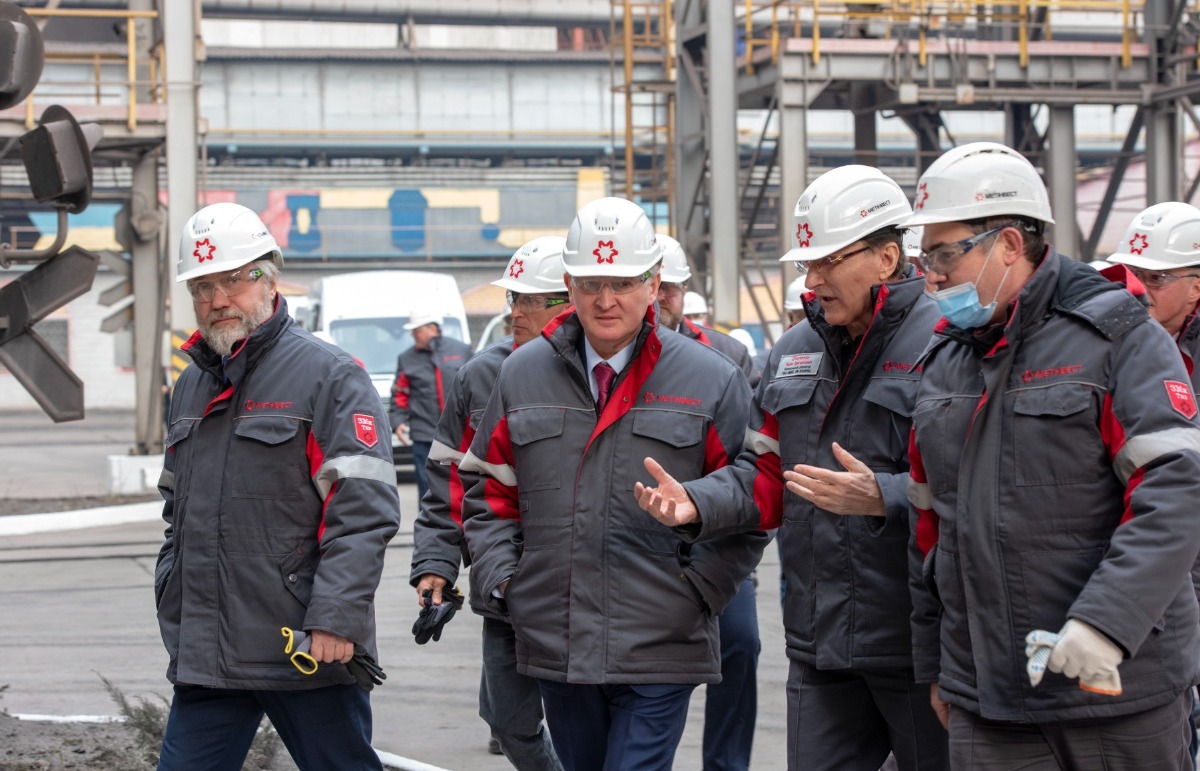
On February 16, Metinvest Group shareholders Rinat Akhmetov and Vadym Novynskyi visited the construction site of the workshop for the production of cold rolled, galvanized and painted coils of Ilyich Steel. Metinvest planned to allocate more than $1 billion to the launch of the CCP complex
There will be another issue, though. Will we be able to supply these products somewhere? Europe has enough suppliers. By transporting products to European ports and from there to some distant markets we will end up with the same economic problem. The only way out here is to develop our economy. Not just by telling steel producers: you should process ore and produce higher value-added products. No, we must stimulate the sectors of Ukraine’s economy that will buy these products. Then steelmakers will take care of the rest. We do not like exporting raw materials, this is not our idea. We would like to sell in Ukraine: for engineering, construction, shipbuilding applications and so on. As long as none of those exist, we have no other choice but to sell raw materials to distant markets.
We must stimulate the sectors of Ukraine’s economy that will buy these products. Then steelmakers will take care of the rest.
– It seems that we will have the opportunity to invest in the development of the construction and engineering sectors, since a lot has been destroyed
– For that to happen, we need to end the war. For the economy to recover and for Ukraine to become stronger, Ukraine needs to win and then develop.
– Another question is what kind of investment we will have. It is understandable that investing in a time of war is quite difficult.
– I think it should come as no surprise to anyone that it is impossible to invest in strategic things when you do not know what will happen to the country in the long run. Yes, we believe Ukraine will win, but we do not know when this will happen.
– Will business manage to carry on in this intermediate state
– Business will continue to exist in one way or another. Yes, we have adjusted our investments and are investing only as much as necessary to maintain the status quo. Nobody has come up with another idea and all businesses will continue to do approximately the same thing.
– When it comes to destroyed and seized facilities, what is your perspective on reparation for the lost assets
– We are currently documenting everything. We are trying all legal steps that need to be taken to document and calculate the amount of reparations. We will then use many legal ways to get it. These will involve national courts and international institutions. In this regard, a lot depends on what the international reparation mechanism will be like.
– And do you have some sort of a global strategy? Are you considering the possibility of opening production facilities in other countries?
– We already have business outside Ukraine: two plants in Italy, one plant in Bulgaria, one plant in the UK and mines in the US. We also have a large trading company that sells our products all over the world
We have already invested and had investments in the pipeline for a large plant in Italy that we planned to build in the next three to four years. The problem, however, was that it would rely on the supply of slabs from Azovstal, which would be processed into finished products in Italy.
It is more difficult now, so we must look for synergies with the assets the company has. For example, we are considering building a new plant in Bulgaria or Italy. But to do this, we need to be sure we will be able to supply our ore from Kryvyi Rih. It is possible now, but not guaranteed. So, we are exploring different scenarios. Our technological strategy envisages investments both in Ukraine and other countries.
In the last eight years most of them were made in Ukraine
– What does the government in Ukraine need to do not only to support business but also to restart the economy?
– I would say: our government needs to walk the walk and not just talk the talk about rebooting the economy. A lot has been said about deregulation or tax reduction, and encouragement of investment. But when you look at what they are doing, everything is the other way around.
We need to be united now; we need to work towards Ukraine’s victory. We are indeed working towards Ukraine’s victory and we sometimes do not even pay attention to problems that exist in the relationship between the government and business. One can turn a blind eye now saying: no, there are no problems, we will carry on, and later, after the victory, we will sort out how to work further. We have chosen this approach.
Even now, when we are having problems: until recently, we had a problem with VAT refunds. While this is always a problem, it has become worse since VAT refunds were stopped for all exporters from February. This is a problem not only for steel producers but also for the agricultural business and other exporters. We understood, though, that we could not talk about it during the first months of the war, since it was necessary to focus on the army, helping people and so on.
Later in May, we went to the government saying: look, we can carry on for two to three months, but then we will start shutting down, and the economy will simply become dysfunctional. It is my understanding that the business community has been heard: a law has been adopted and signed by the President. The law has come into force now. And I think we will start to see results this month. Although there are always problems to face, in times of war, we must all unite and work towards a common goal
Read about the current situation at Metinvest Group companies on a special long-read. Information is updated 24/7. Bookmark and share with friends. Keep calm and trust only official sources.






